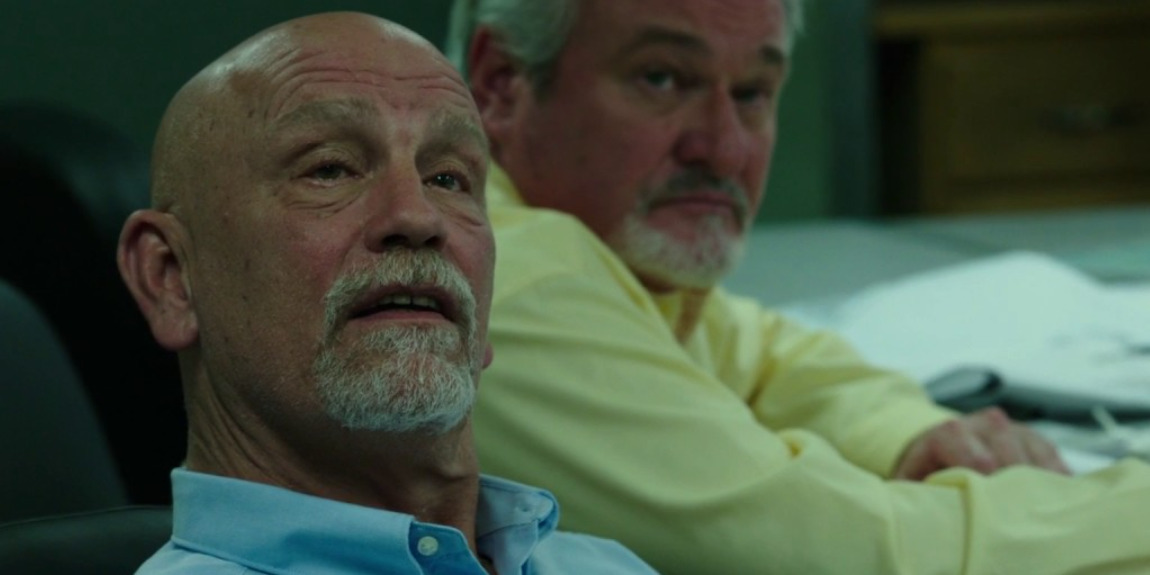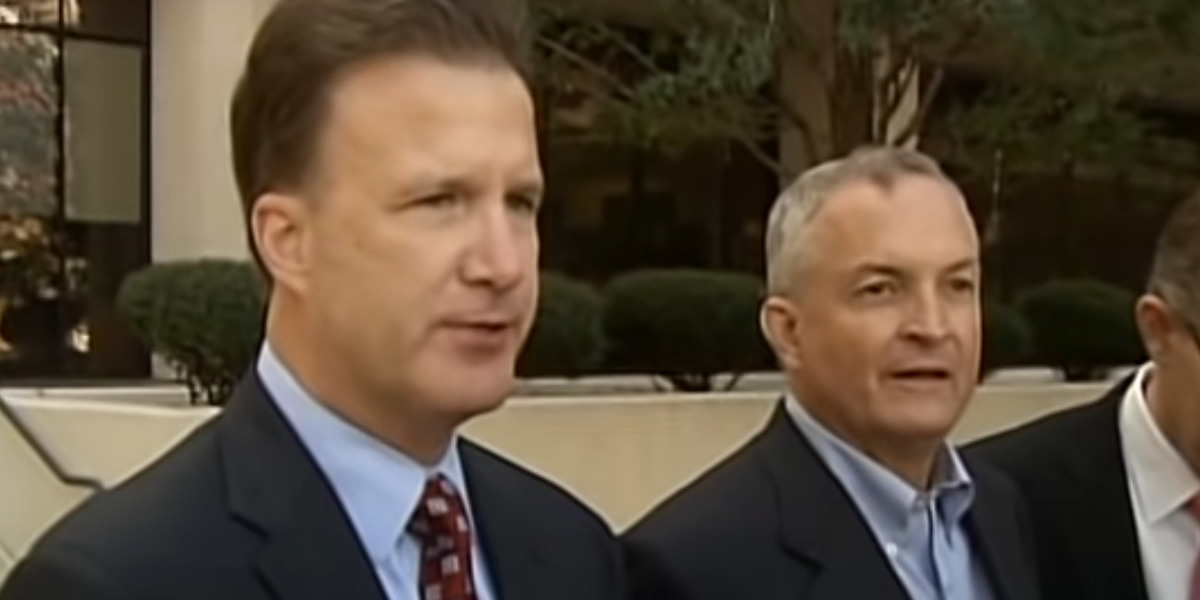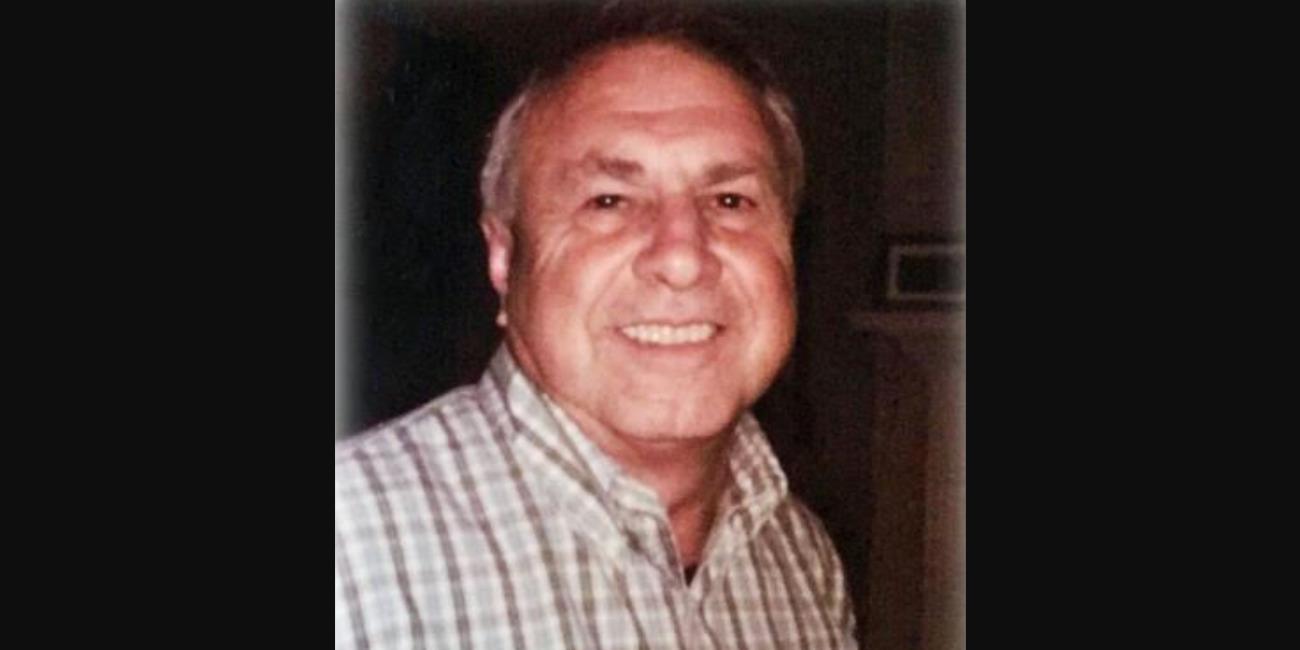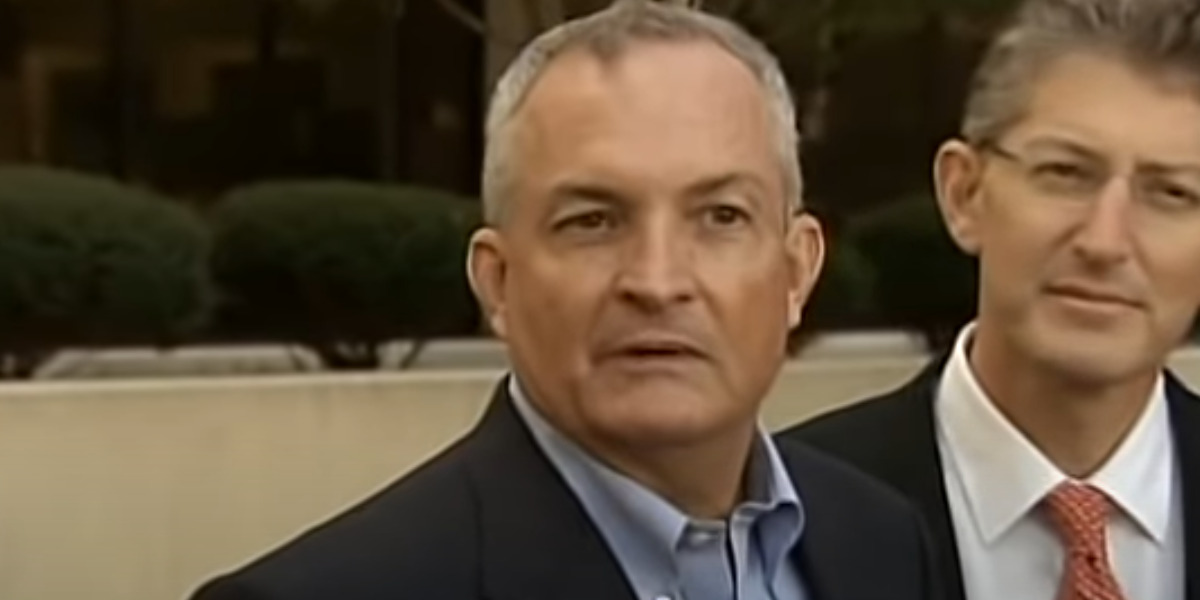The 2010 BP Oil Spill, which began on April 20 with the blowout in the Deepwater Horizon drilling rig, resulted in the biggest oil spill in American history. The rig, owned by Transocean but under BP’s lease, was situated in the Gulf of Mexico, working over the Macondo Prospect oil field with about 126 crew members aboard. 11 of these crew members lost their lives during the explosion. Meanwhile, the others were able to evacuate with varying levels of injuries. The 2016 film, ‘Deepwater Horizon,’ commemorates the tragic events revolving around the same explosions with characters based on real-life crew members at the narrative’s center.
Likewise, in the film’s depiction of the events, the two actual BP executives, Don Vidrine and Bob Kaluza, who were also aboard the rig that fateful day, become the inspiration for the film’s antagonists. For the same reason, Vidrine and Kaluza’s involvement with a disaster of such a large scale must have stirred the audience’s interest regarding their lives post-Deepwater Horizon.
Who Are Don Vidrine and Bob Kaluza?
Don Vidrine and Bob Kaluza were the two BP executives who served as rig supervisors aboard Deepwater Horizon during the series of events that led to the drastic blowout. Donald Joseph Vidrine worked in the oil industry for around four decades, including his employment under BP and its precursor companies. With his extensive experience, the man usually worked as an offshore supervisor on shallow/deepwater rigs and took the role of nighttime supervisor aboard the Deepwater Horizon.

Inversely, Bob Kaluza, who helmed the daytime supervisory duties, was another seasoned oil industry worker with decades of experience. Even though, unlike Vidrine, Kaluza was only on board for a five-day shift, taking over for another site leader, Kaluza previously served a 9-month assignment on the rig ten years prior. Even so, the man was not prepared to wake up to blaring alarms and emergency announcements on April 20, his fourth night on the rig.
Reportedly, Kaluza sought help from other crew members in locating the lifeboats after introducing himself as “the new guy on the rig.” Later, Kaluza went on to speak of his experience with a focus on the other crew members and said, “I saw many people close to panicked. It was my duty to keep my composure and get people calmly onto that lifeboat—and we did.” Similarly, Vidrine was able to make it out of his office and onto the lifeboat in time even though there aren’t any in-depth accounts of his experience at the time of the explosion.
Both BP supervisors, Kaluza and Vidrine, found themselves in grave legal trouble in the aftermath of their survival. The reason remained an earlier pressure test the two conducted, which could have warned the others about the possibility of the explosion if properly orchestrated. As a result, the authorities charged the pair with Seaman’s Manslaughter, with 11 charges, one for every deceased crew member. Furthermore, they also received similar charges of involuntary manslaughter— 11 violations— alongside misdemeanor violations of the Clean Water Act.
Where is Bob Kaluza Now?
November 15, 2012, saw BP’s agreement to a settlement for 4.5 million dollars with guilty pleas to 14 criminal counts — all related to the Deepwater Horizon explosion and the resulting deaths of 11 workers. However, the company also brought attention to Kaluza and Vidrine, alleging that their neglectful actions during the pressure test led to the eventual explosion. As a result, Kaluza and Vidrine received their own charges. “My company was trying to blame me,” said Kaluza. “That’s when I knew I was on my own.” The legal battle that followed was brutal and arduous.

Three years later, a December 2015 ruling dismissed the Seaman’s Manslaughter charges since the 1838 Act behind the Statute, established to hold people accountable for shipping accidents, wasn’t meant to be used against well-site leaders. Eventually, in a turn of events, the Department of Justice ended up dropping the involuntary manslaughter charges against Kaluza and Vidrine. Lastly, Vidrine chose to plead guilty to the Clean Water Act misdemeanor, testifying against Kaluza as a part of the deal.
Comparatively, Kaluza was acquitted after taking his charge to a court trial. In the end, Kaluza blamed the BP upper-level managers, claiming they were more focused on money than safety. The man went on to write a book, ‘Deepwater Deception: The Truth about the Tragic Blowout & Perversion of American Justice,’ in 2020, detailing his own account of the events. Today, Kaluza works in the oil industry as an independent drilling and workover supervisor.
Don Vidrine Passed Away in 2017
While Bob Kaluza and Don Vidrine’s seaman’s/involuntary manslaughter charges were mutually dismissed, the latter ended up pleading guilty to the Clean Water Act misdemeanor alone. As a result, April 2016 delivered his sentence, including a 50,000 fine, 100 hours of community service, and ten months probation. Despite his testimony against Kaluza for the plea deal, the latter, who worked with Vidrine for a year offshore the Gulf of Mexico, held no bitter feelings toward the other man. Consequently, after news arrived of Vidrine’s passing in 2017 following a 3-year-long battle with cancer, Kaluza only had good things to say about the man.

He said, “Don was a very experienced, knowledgeable, and conscientious deep water offshore Dolling supervisor that passed away far too soon.” Kaluza also emphasized the significance of family in the man’s life. In his death, Vidrine left behind his wife of 48 years, Jacqueline “Jackie” Lafleur Vidrine, a son, Kevin Vidrine, and grandaughters, Abigail Vidrine and Kaitlyn Vidrine. The latter two were the loves of his life with whom he enjoyed spending time. Likewise, Vidrine’s family also described him as an avid golfer and a devoted member of the Most Blessed Sacrament Catholic Church of Baton Rouge.
Read More: Jimmy Harrell: What Happened to Deepwater Horizon Installation Manager?


You must be logged in to post a comment.